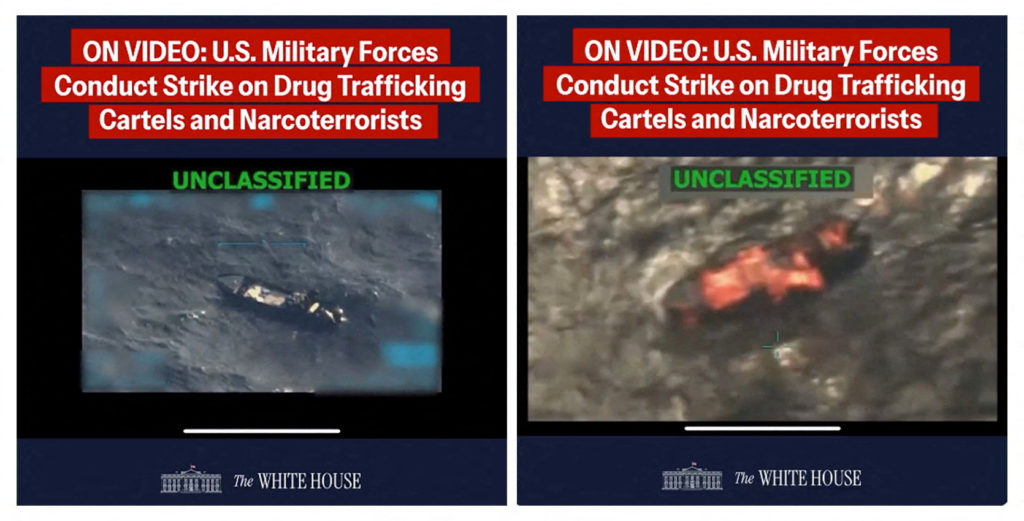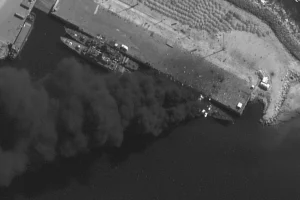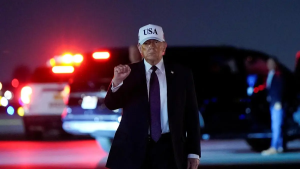U.S. Considers Land Strikes in Venezuela Over Drug Trafficking Concerns

FILE PHOTO: A combination image shows two screen captures from a video posted on the X account of The White House on September 15, 2025, depicting what U.S. President Donald Trump said was a U.S. military strike on a Venezuelan drug cartel vessel that had been on its way to the United States, the second such strike carried out against a suspected drug boat in recent weeks. The White House/Handout via REUTERS. THIS IMAGE HAS BEEN SUPPLIED BY A THIRD PARTY. IMAGE BLURRED AT SOURCE Verification lines: Reuters checked the footage through our AI detection tool and found no evidence of manipulation. however, the footage is partly blurred, making it impossible to confirm if the video is manipulated. Thorough verification is an ongoing process, and Reuters will continue to review the footage as more information becomes available./File Photo
By Newsmax Wires | Friday, 31 October 2025 11:07 AM EDT
The U.S. is exploring options to conduct strikes on targets within Venezuela linked to drug trafficking networks, marking a significant escalation from recent maritime interdictions. Reports indicate that planning has advanced beyond naval operations, with potential land targets being mapped in case President Donald Trump authorizes airstrikes.
A U.S. carrier is reportedly moving into the region, accompanied by destroyers equipped with Tomahawk land-attack missiles, F/A-18 Super Hornets, and EA-18 Growler electronic-warfare jets—capabilities that could expand strike options. Defense analysts suggest initial airstrikes might target Nicolás Maduro’s inner circle, though such actions risk triggering a rally-around-the-flag backlash.
U.S. indictments of Maduro and his top aides have increased the personal stakes for any negotiated exit, complicating calculations within the regime. Retired Adm. James Stavridis noted that an initial wave could strike naval and air force targets ashore, with potential follow-up actions against “leadership targets,” adding that sustained pressure might prompt Maduro to “fold his cards and go.”
This shift follows a series of U.S. strikes on suspected Venezuelan drug boats. On Sept. 2, forces targeted a vessel linked to the Tren de Aragua gang, killing 11. A second strike on Sept. 15 killed three more aboard another alleged smuggling craft, with the administration signaling potential expansion of maritime operations.
Days after the first strike, two Venezuelan F-16s flew near a U.S. destroyer in international waters; the Pentagon condemned the move as “highly provocative” and warned against interference with counter-narcotics efforts. Venezuela has denounced the campaign as aggression, questioning U.S. evidence, with Communications Minister Freddy Ñáñez suggesting the initial strike video may have been manipulated.
U.S. comments on prospective land targets remain limited, though the Pentagon has framed recent actions as necessary to disrupt networks “threatening Americans,” while withholding details on munitions and seized cargo. Analysts note that the carrier-led military package aims to provide Trump with broader options if he authorizes strikes in Venezuela.
Analysts caution that failure to achieve immediate change could lead to escalation, raising stakes for Washington and the region.




